Defining plagiarism
Plagiarism is a form of cheating and is a serious academic offence. It arises where work submitted by a student is not their own, but has been taken from another source. The original material is then hidden from the marker, either by not referencing it properly, by paraphrasing it or by not mentioning it at all.
The most common forms of plagiarism are:
- Cut/copy and pasted material from the Web without appropriate referencing;
- Submitting text/material that has been generated by a third party (often through a commercial transaction) as your own;
- Copying the work of another student (past or present);
- Copying course material or lecture notes without appropriate referencing;
- Copying material/ideas/arguments from any source and presenting it as your own (for example, textbook, journal, sector/industry report, newspaper, podcast, video or another source);
- Copying text from one of your own assessments into another (auto-plagiarism) - you can only obtain marks ONCE for any text that you have generated for an assignment. Instead, reword the text appropriately using your original research notes.
It is important to realise that plagiarism may occur in a number of other forms, as well as in conventional written work. Another student may be involved, or the plagiarism may arise from the misuse of sources outside of University College Birmingham.
The key is proper attribution of source material.
Plagiarism is a serious matter for University College Birmingham. If not dealt with, it will ultimately devalue all UCB’s degrees to the detriment of both students and University College Birmingham. It also introduces a fundamental and inevitable distortion when the work of a student cohort is being assessed.
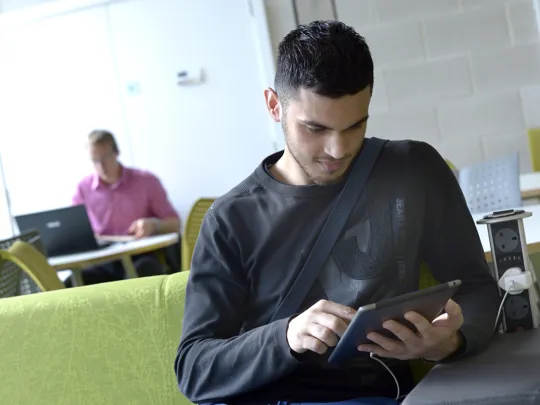
Student responsibilities
As a student at University College Birmingham, you are expected to submit work that demonstrates the following criteria:
- Your understanding, review and conclusions of the assignment topic based on the quality of your own research.
- The use of your own words to articulate the points used within your assignment
- Clear and explicit referencing of all sources used within your assignment to support all points made.
By definition, a piece of work that has been plagiarised will never meet the above criteria.
‘Accidental’ Plagiarism
University College Birmingham accepts that students, particularly in view of the severe penalties that may be applied in cases of serious plagiarism, will be anxious to avoid inadvertently submitting plagiarised work. It is, for example, possible to cite a source in a separate reference list and still commit plagiarism by then incorporating a significant amount of unattributed material taken directly or indirectly (through paraphrasing) from that source into the body of the assignment.
Above all, the student body is not a single grouping, and University College Birmingham is aware of the need for a sympathetic approach to plagiarism, particularly in the first year of undergraduate studies, where there is no conscious attempt by the student to deceive. However, penalties may be applied at any time.
The onus is on individual students to ensure that the academic conventions applicable to study at University are understood and acted upon. University College Birmingham will ensure that you have clear guidance on what is expected of you regarding the referencing of source material. If you are worried about committing plagiarism, always seek help and advice from your module lecturer or tutor. Members of staff who are experienced in dealing with questions about proper referencing will be happy to help.
How we deal with plagiarism
This is a complex area. In broad terms, these are the various stages:
- If University College Birmingham is sure that any plagiarism that arises is not deliberate on your part and may be put down to an unfamiliarity with the referencing conventions required for University College Birmingham study, then it may simply provide guidance and a warning concerning your future work. Obviously, this position will not be taken with a student where it is reasonable to expect that they would know how to cite source material properly and would normally only apply to Level 4 study and to the early stages of a postgraduate course;
- If University College Birmingham believes that some form of sanction may be necessary, it will first ask you to attend a meeting where you will be able to explain in detail the relevant circumstances. It is useful to take your research notes, evidence of your ethical use of AI (if relevant) and draft assessment to this meeting to support your case. In addition, you will be expected to answer questions about your assignment content and the references you have used.
- Following on from the meeting, University College Birmingham will determine the level of plagiarism (if any) that it believes has arisen. There are three general categories:
- Poor academic practice
- Moderate plagiarism
- Serious plagiarism
- If University College Birmingham considers that a warning is insufficient, it may do one of the following:
- Require you to resubmit the work, with the mark capped at the pass level
- Reduce the final mark for the work to an appropriate level, including the award of 0
- Reduce the final mark for the entire module involved to an appropriate level, including the award of 0
- Have the case referred, after scrutiny, to the Plagiarism Panel and the University Disciplinary Process. Depending upon the severity of the case and after hearing all the evidence, you may be suspended or required to withdraw from University College Birmingham.
You should also consult the Code of Practice on Plagiarism and Academic Misconduct. This provides detailed and definitive information on how University College Birmingham will deal with plagiarism.
Discover more
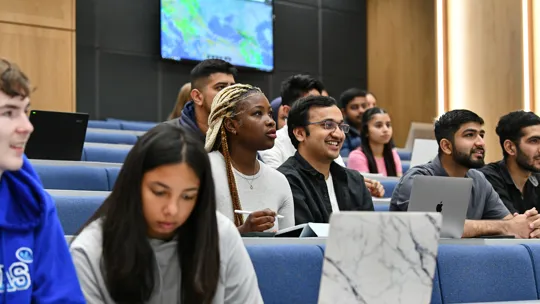
Learning Hub
Explore the Learning Hub for insights on diverse learning methods, assignment types, and essential skills. Learn more about the academic support we offer.
Read more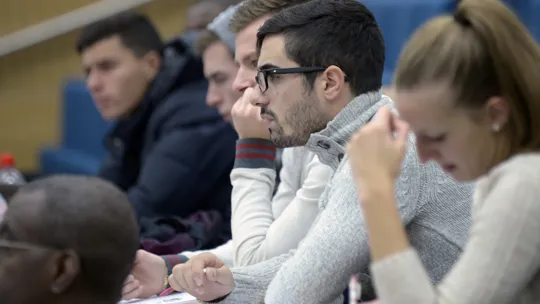
Higher Education Student Handbook
University College Birmingham HE Student Handbook deals with everything you will need to organise prior to your arrival here as a First Year student.
Read more
Work Placements
Placements are administered by a team of Employability Tutors based within hired@UCB on the Ground Floor of the Moss House Campus.
Read more
Changing your course
Every year, some students decide that they wish to change their programme of study, and move either to another programme within University College Birmingham.
Read more
Health and Safety Regulations
Our policy is to take all reasonable and practicable steps to provide and maintain safe and healthy working conditions.
Read more
Equal Opportunities Policy
The aim of the Policy is to ensure that all students, employees, applicants and all those involved in its work, and other users of University College Birmingham fac…
Read more
Computer Misuse Policy
All access of computers and connected systems is governed by the Computer Misuse Act 1990. This act has created three criminal offences covering the usage of computers.
Read more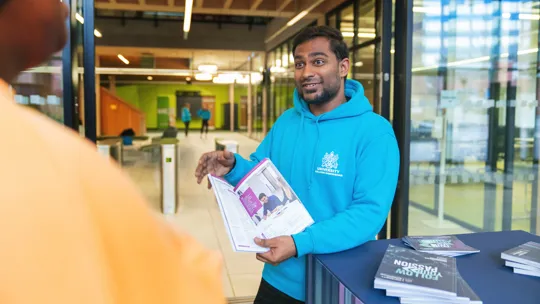
Open days
Come and visit us on one of our open days, where you can find out more about our courses, our facilities and speak to current students and staff.
Read more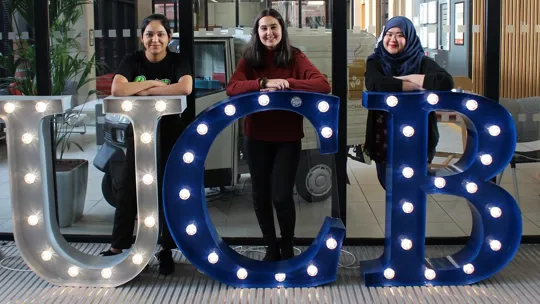
Contact us
There are many ways you can contact University College Birmingham, from phone and email to social media.
Read more